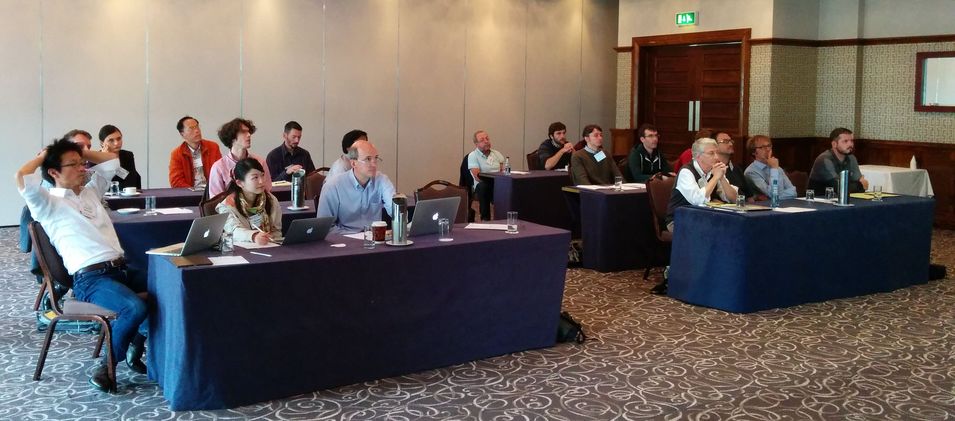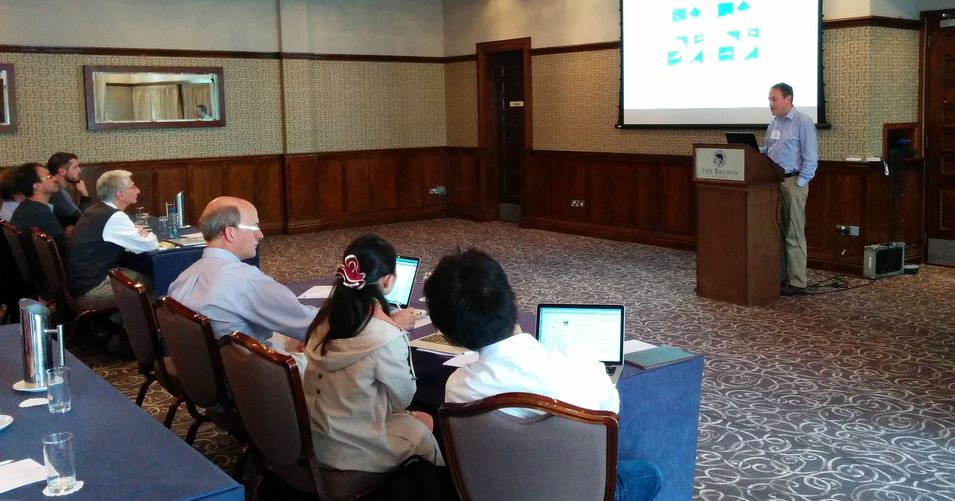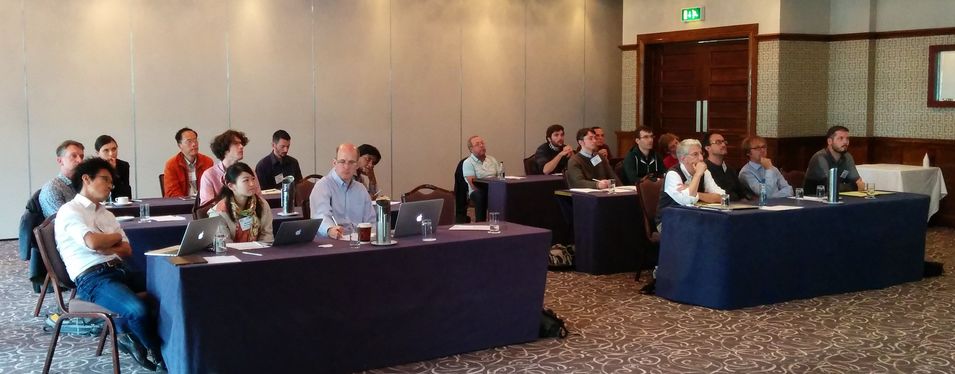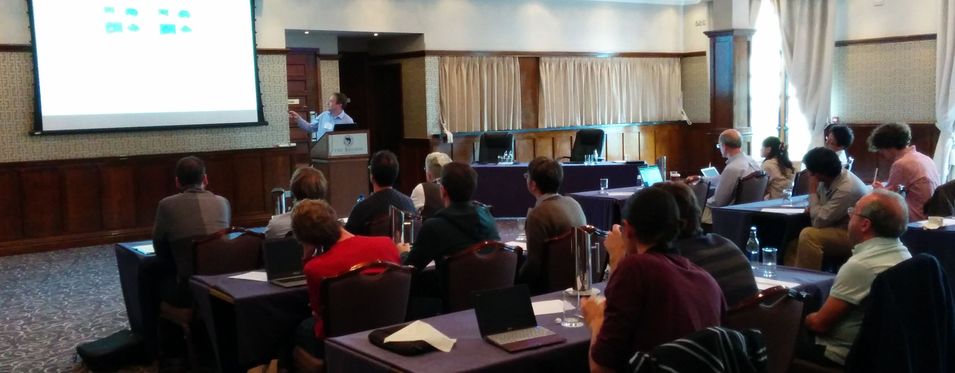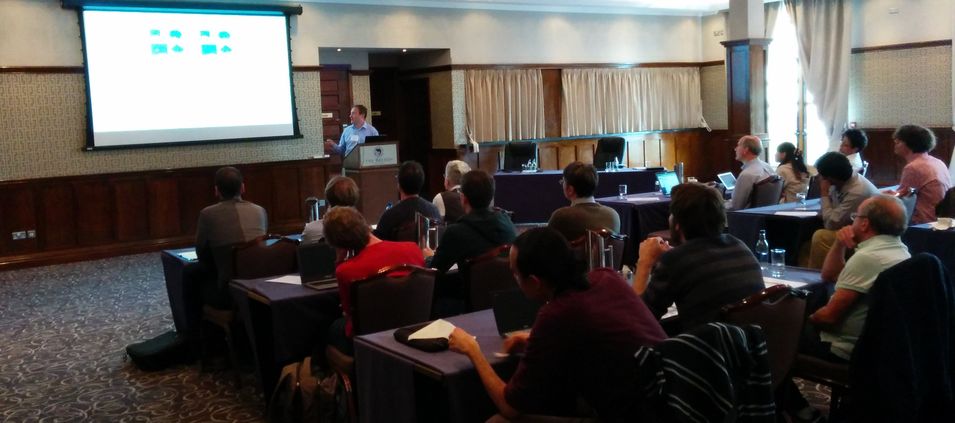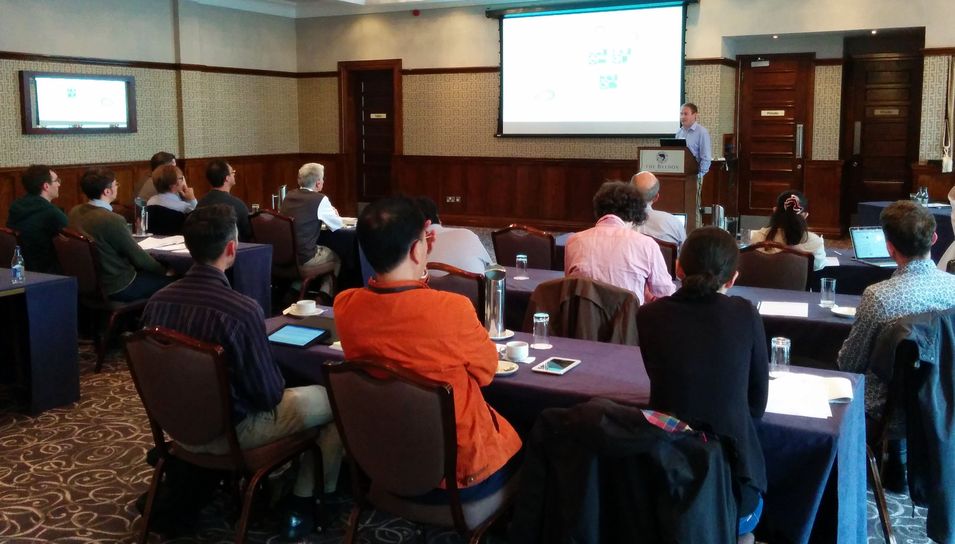IJCNN 2015 Workshop: Spatial Representations in Biology and Robots
Scope and Motivation
Understanding spatial representations in neuronal systems has gained significant attention in previous years. An efficient translation of such neuronal mechanism into technological applications, in contrast, is significantly less well understood. Furthermore, applications of spatial representations (such as "path-planning"), both in neuroscience and engineering, are currently under investigations at varying levels of detail (from neuronal recordings over neural-imaging to psychophysical/behavioral experiments). In this workshop two current EU FET projects (SpaceCog and Gridmap) investigating spatial representations will contribute a nucleus of speakers. Further invited researchers will complement expertise both in neurobiology and engineering. We will address the state-of-the-art and future opportunities to translate neurobiological models into technology that can get applied to autonomous agents, such as mobile robots or personal assistive devices.
Topics
Place Cells, GridCells, Neuronal Models of Spatial Representation, Applications of Spatial Representations for Navigation
Workshop Schedule and Presentations
| Date | Thursday, July 16 |
| Time | Afternoon Session, 13:30 - 16:30 |
| 13:30 | Short Introduction (Jörg Conradt, Fred Hamker) |
| 13:40 | Alessandro Treves: The Neural Representation of Space beyond Flatland |
| 14:05 | Jörg Conradt: Self-Construction and Re-Alignment of Grid Cells Structures |
| 14:30 | Alfredo Weitzenfeld: A Spatial Cognition Model Integrating Grid Cells and Place Cells |
| 14:55 | Short Coffee Break |
| 15:10 | Lorenz Goenner: Place-Cell Sequences Signal Behavioral Goals: A Model of Goal Memory in Cortico-Hippocampal Circuits |
| 15:35 | Neil Burgess: The role of object vector cells in peripersonal space navigation |
| 16:00 | Jeffrey L. Krichmar: A cortical neural network model for visually guided robot navigation |
| 16:25 | Concluding Remarks |
Short bio of organizers
Jörg Conradt is Junior Professor at the Technische Universität München in the Faculty of Electrical Engineering and Information Technology, Institute of Automation and Control Engineering. The laboratory is affiliated with TUM’s Competence Center on NeuroEngineering and the Munich Bernstein Center for Computational Neuroscience. He holds an M.S. degree in Computer Science/Robotics from the University of Southern California, a Diploma in Computer Engineering from TU Berlin, and a Ph.D. in Physics/Neuroscience from ETH Zurich. His research investigates key principles by which information processing in brains works, and applies those to real-world interacting technical systems.
Fred Hamker is professor of Artificial Intelligence at the Department of Computer Science of the Chemnitz University of Technology. He received his diploma in Electrical Engineering from the University of Paderborn in 1994 and his PhD in Computer Science at the TU Ilmenau in 1999. He was a Post-Doc at the J.W. Goethe University of Frankfurt and the California Institute of Technology (Pasadena, USA). In 2008 he received his venia legendi from the Department of Psychology at the Westf. Wilhelms-University Munster. His research interest is to explore brain function by developing realistic neuro-computational models and to transfer these models towards technological applications.

